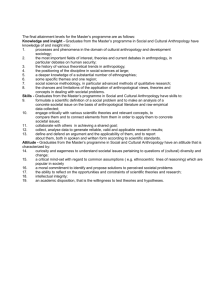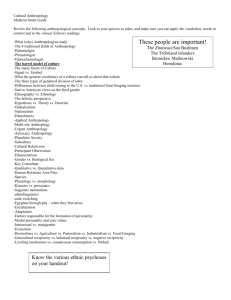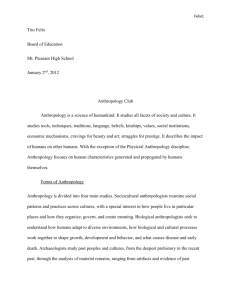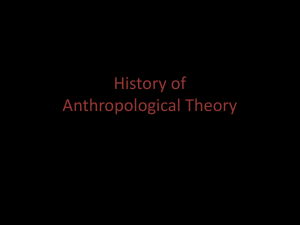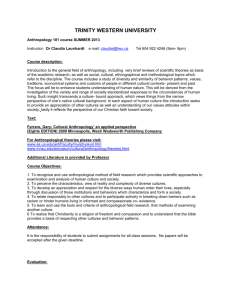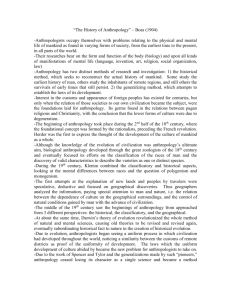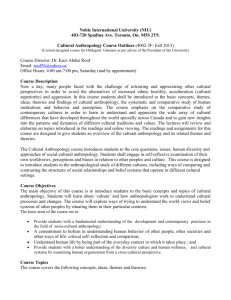globalization anthropologists
advertisement
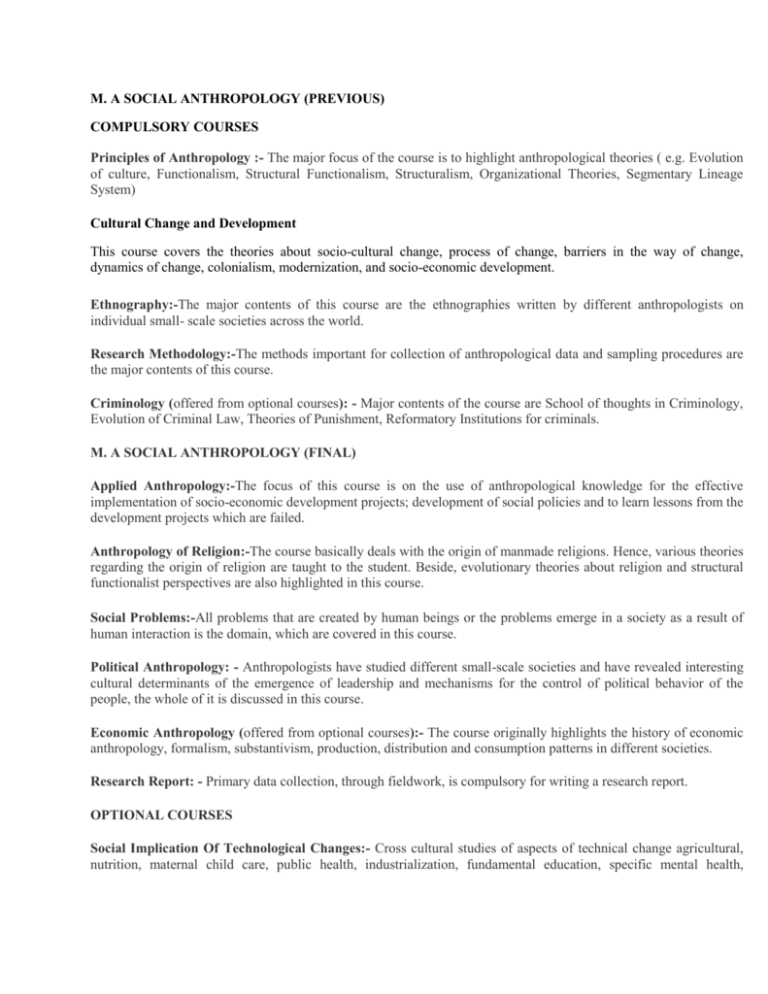
M. A SOCIAL ANTHROPOLOGY (PREVIOUS) COMPULSORY COURSES Principles of Anthropology :- The major focus of the course is to highlight anthropological theories ( e.g. Evolution of culture, Functionalism, Structural Functionalism, Structuralism, Organizational Theories, Segmentary Lineage System) Cultural Change and Development This course covers the theories about socio-cultural change, process of change, barriers in the way of change, dynamics of change, colonialism, modernization, and socio-economic development. Ethnography:-The major contents of this course are the ethnographies written by different anthropologists on individual small- scale societies across the world. Research Methodology:-The methods important for collection of anthropological data and sampling procedures are the major contents of this course. Criminology (offered from optional courses): - Major contents of the course are School of thoughts in Criminology, Evolution of Criminal Law, Theories of Punishment, Reformatory Institutions for criminals. M. A SOCIAL ANTHROPOLOGY (FINAL) Applied Anthropology:-The focus of this course is on the use of anthropological knowledge for the effective implementation of socio-economic development projects; development of social policies and to learn lessons from the development projects which are failed. Anthropology of Religion:-The course basically deals with the origin of manmade religions. Hence, various theories regarding the origin of religion are taught to the student. Beside, evolutionary theories about religion and structural functionalist perspectives are also highlighted in this course. Social Problems:-All problems that are created by human beings or the problems emerge in a society as a result of human interaction is the domain, which are covered in this course. Political Anthropology: - Anthropologists have studied different small-scale societies and have revealed interesting cultural determinants of the emergence of leadership and mechanisms for the control of political behavior of the people, the whole of it is discussed in this course. Economic Anthropology (offered from optional courses):- The course originally highlights the history of economic anthropology, formalism, substantivism, production, distribution and consumption patterns in different societies. Research Report: - Primary data collection, through fieldwork, is compulsory for writing a research report. OPTIONAL COURSES Social Implication Of Technological Changes:- Cross cultural studies of aspects of technical change agricultural, nutrition, maternal child care, public health, industrialization, fundamental education, specific mental health, implication of technical change constitute the main contents of this course. Primitive Technology:-Techniques and energy as a universal concept of science, nomadic hunter gatherers, forest cultivators, fishermen, herdsmen of South West Asia, Technology and transportation technology and political organization, technology and economic system, technology and environment and technology and cultural change are studied in this course Socio-Linguistics :- The origin of languages, and society, language and social class, language and ethnic group, language and sex, language as a system of culture knowledge and the process of linguistics divergence. are covered in this course. Community Development: - This course discusses various factors/approaches/methodologies of community development, sociological criteria of a good community, organization and administration of community development programs. Comparative Social Institutions: - The basic theme of the course is to compare the basic social institutions like (Family, Marriage, Kinship, and Religion) across the world and highlight the similarities and differences existing among them. Anthropology of Globalization: - The course addresses the emergence of global world and its impact over the local economies of different countries, social system, religion and politics.
